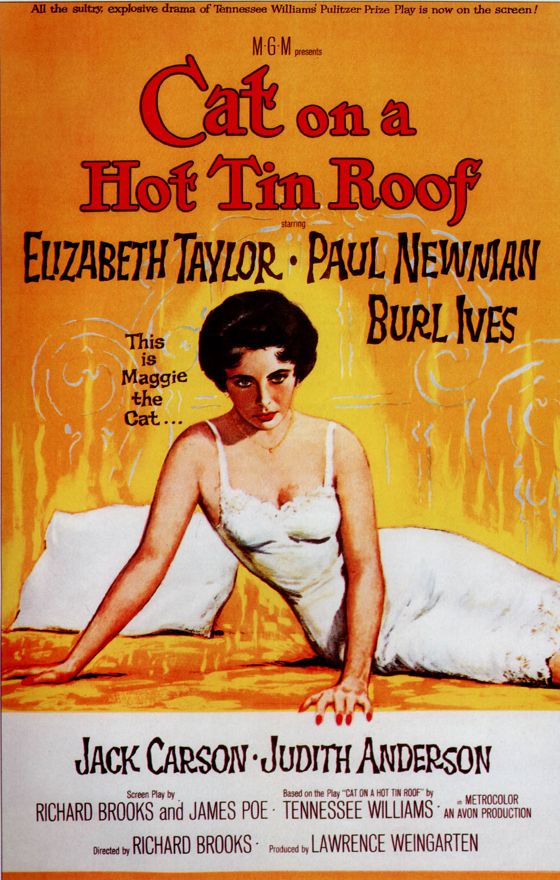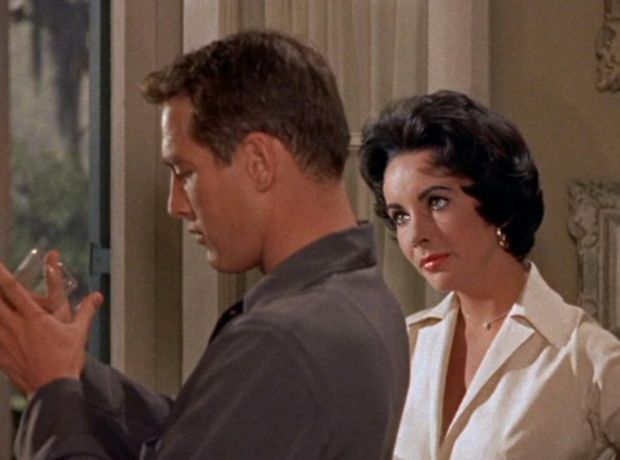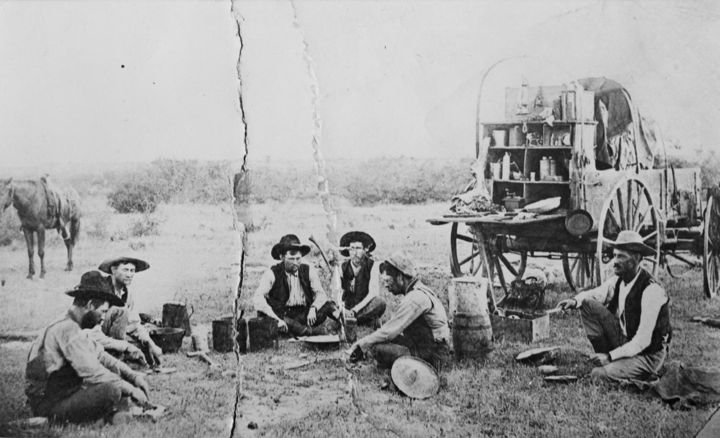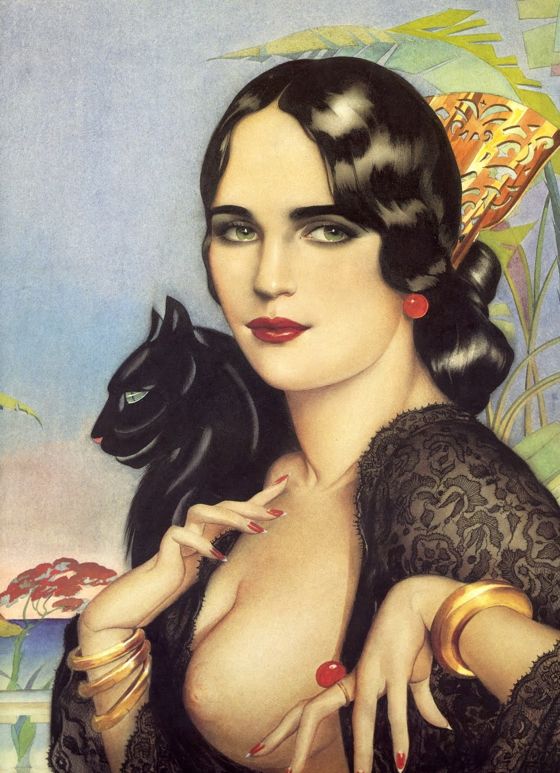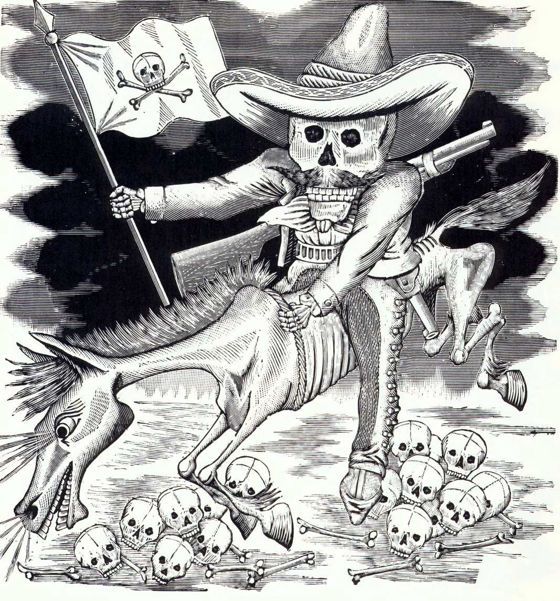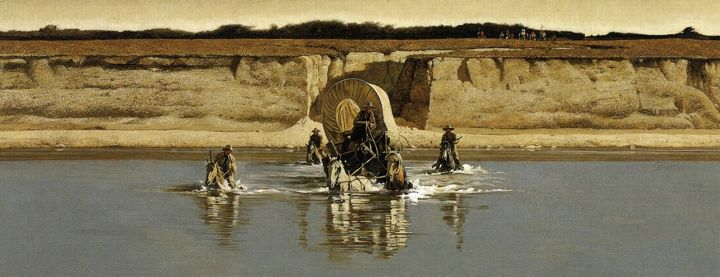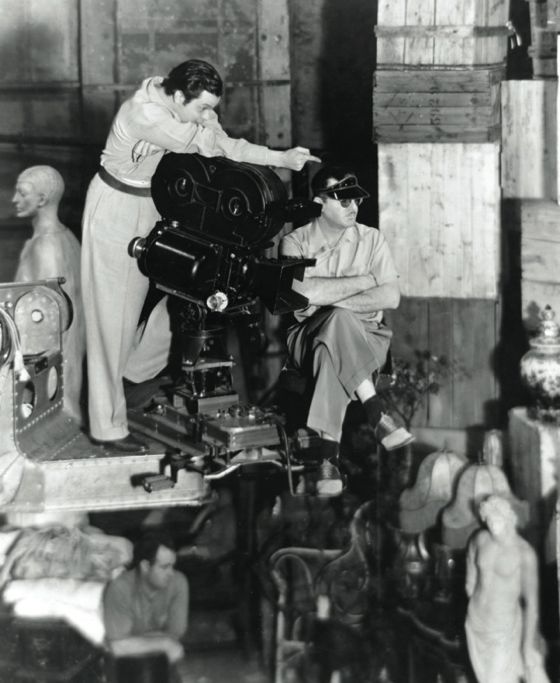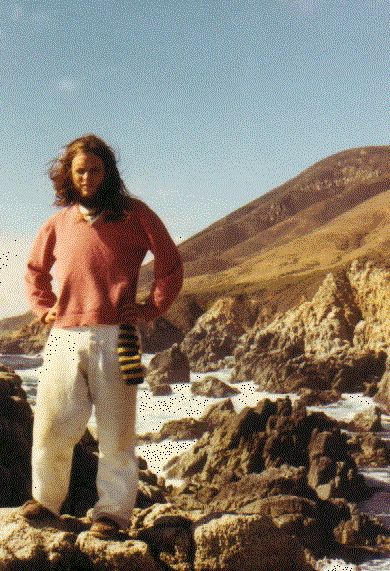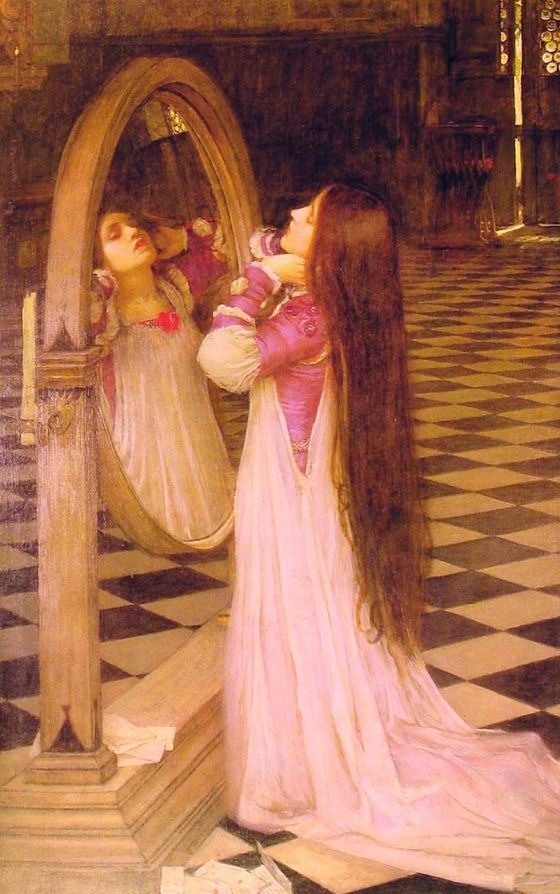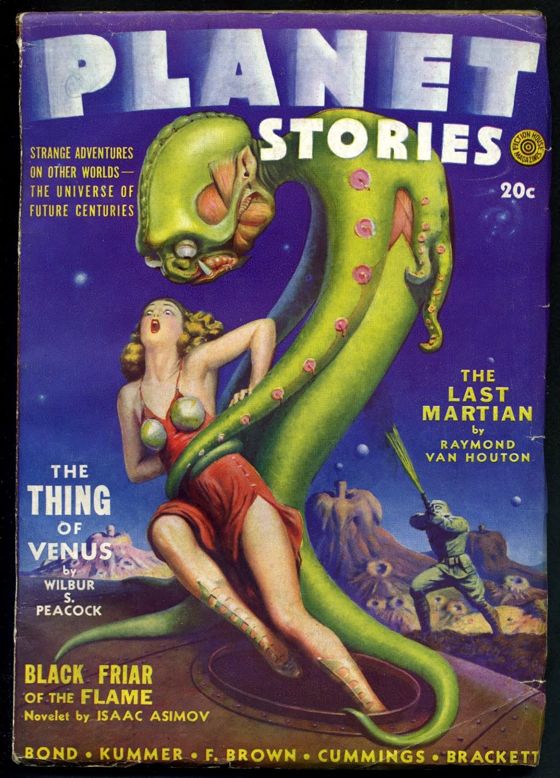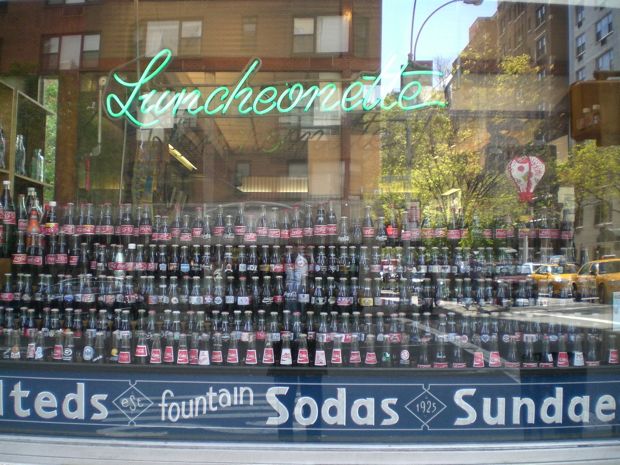
My friend Mary Zahl was in New York last week and snapped these pics of a store at 83rd and Lex — sent them along to me knowing of my deep and abiding love of Coca-Cola.
I'm actually not a big fan of the Coca-Cola that's made in this country these days, sweetened with corn syrup. The old-fashioned Coca-Cola, sweetened with real sugar, is my drink. It's still made in Mexico, and other countries, and can be had here if you look for it.
My local chain grocery store, which has a lot of Hispanic customers, just started carrying it — to my great delight. It's a quality-of-life issue for me. The Cokes in the window of this candy shop look like they might be Mexican Cokes — you usually find them in these tall 12-ounce glass bottles, never in cans.
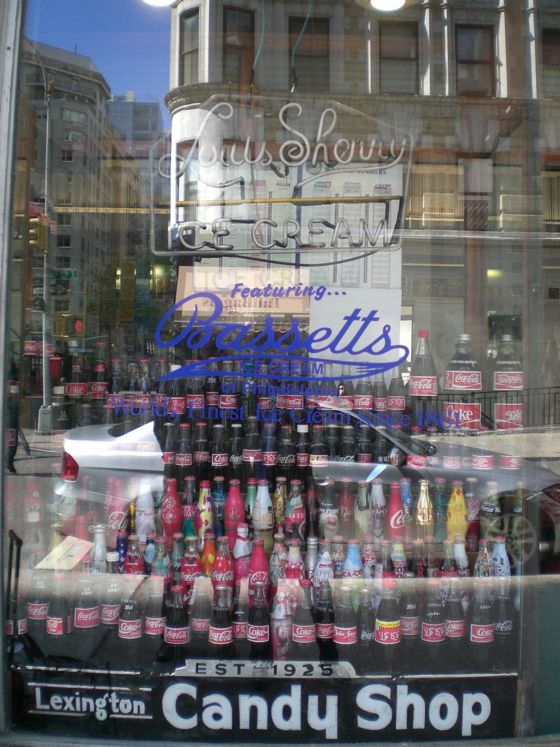
My love of the Coca-Cola logo involves other issues — memories of its ubiquity in the South of the 1950s when I was growing up, and a sense that it's a kind of alternate American flag, a symbol of my country . . . my country right or wrong.

